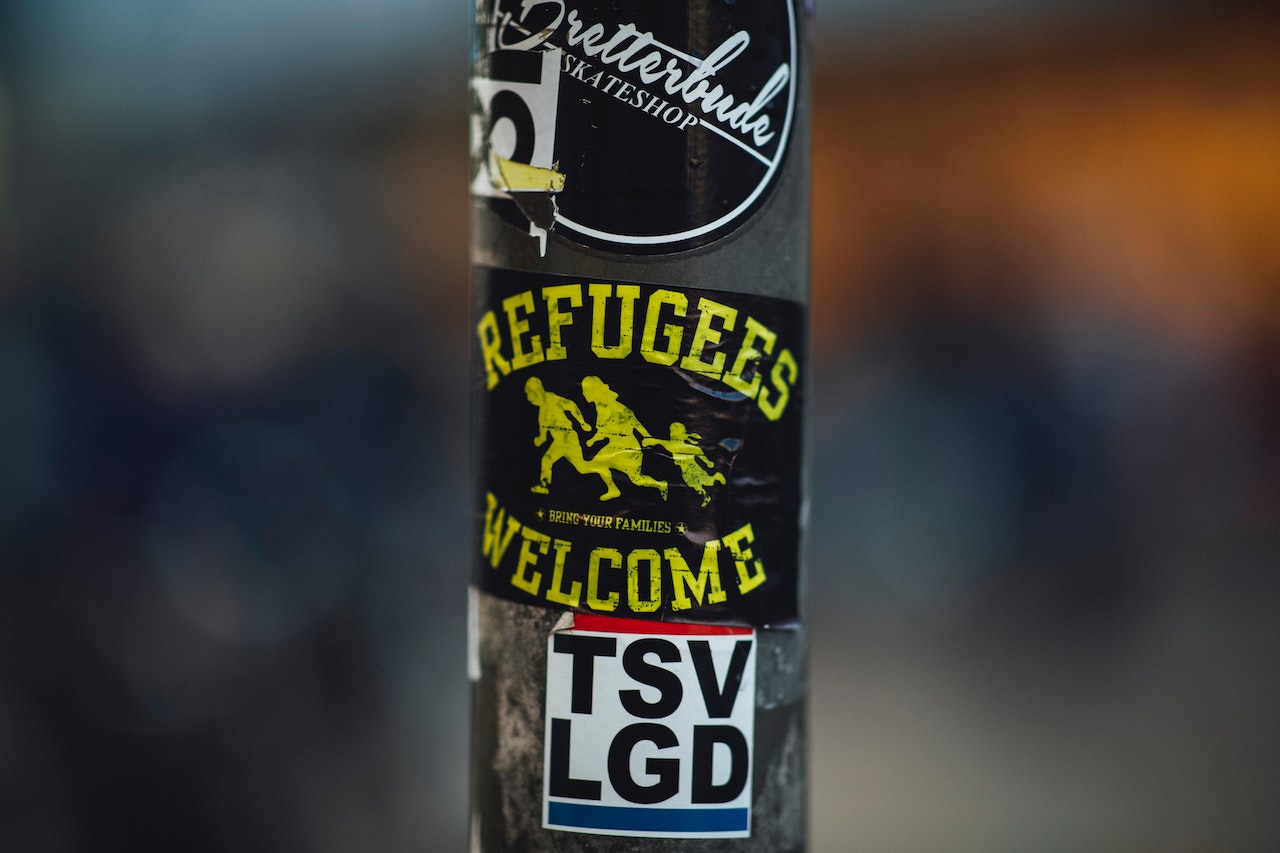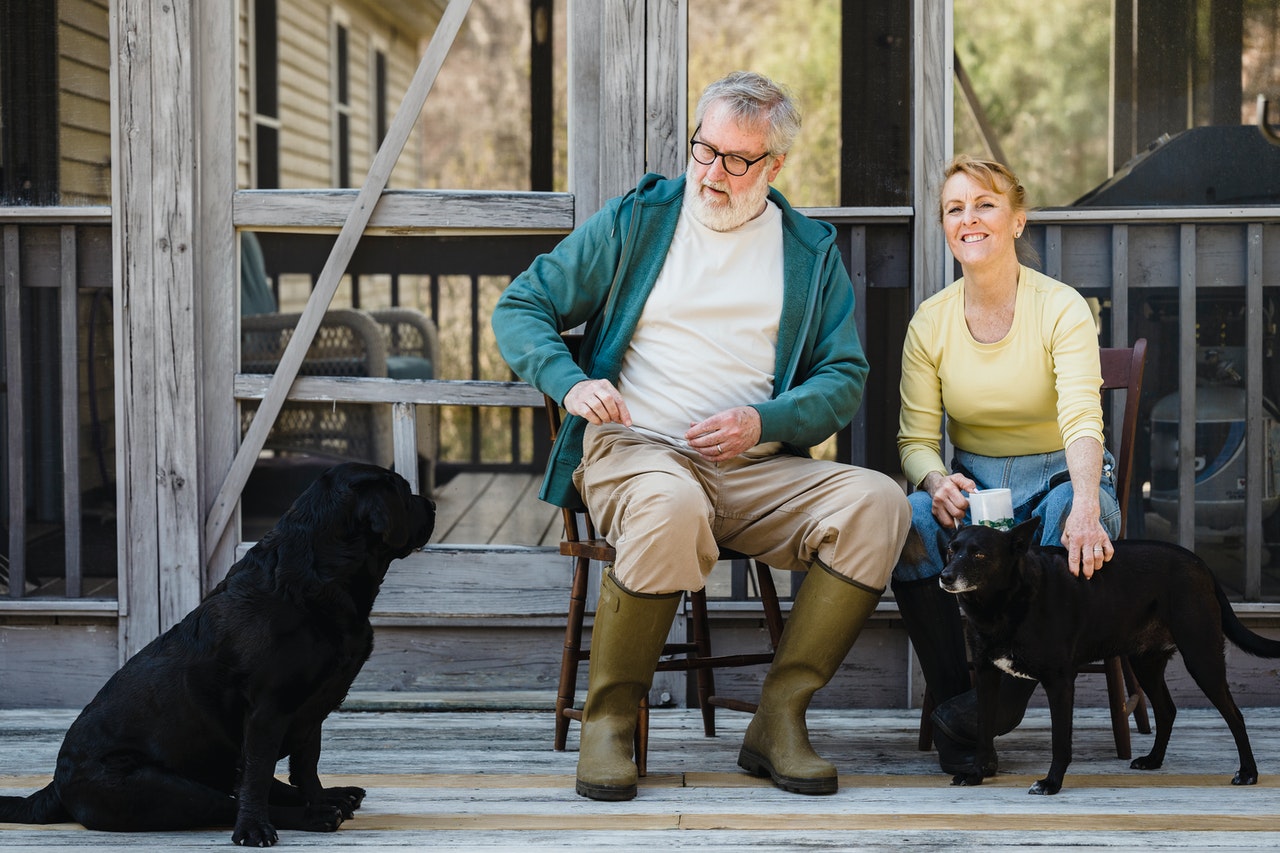Many countries across the globe are facing a variety of crises, leading families and individuals to seek asylum elsewhere. Hosting a refugee at home is a wonderful way to help those in need get their lives back on track. Not only is it a kind thing to do, but it’s also one of the most life-enhancing things you can do for yourself and those in a crisis. By offering shelter, you’re helping your fellow human beings rebuild their lives while giving them a safe place to recover.
Read on to learn more about how you can prepare to house a displaced family or individual.
Define the type of space you can offer
Depending on how much space you have available in your home, you could offer support to either an entire family or a single individual.
- An entire home or story. If you have abundant space to spare, you can offer an entirely separate area for your new guests to stay in. This could include something like a room over your garage or an ADU (Accessory Dwelling Unit). This option would provide a large space to your guests, typically including a bedroom, bathroom, and a small kitchen. If you’re going to be living on the property as well, make sure your guest or guests are aware. Overall, this is one of the best options since it gives the individual or family more privacy and freedom.
- A private room. This option provides your guests with their own private room for sleeping. It may or may not include an attached bathroom or a shared bathroom. The rest of your home, like the kitchen and living room, would be a shared space that both the hosts and guests use. Offering a guest bedroom is a great option for an individual, a couple, or a single parent and child. This provides your guests with a comfortable, quiet place to sleep while they also share their time and space with you and your family in the kitchen, dining, and/or living room.
- A shared room. If you don’t have an ADU or a spare bedroom, you can still work toward supporting refugees by offering a shared room. For this option, guests will sleep in a single bedroom or common area that could be shared with others. For example, if you have a sleeper sofa, you could temporarily offer it to your guests. Although it’s in a shared area like the living room, it still gives them a comfortable place to lay their head. While this setup is best for short-term stays, it’s still a wonderful gesture that shows your willingness to help those who need it.
Prepare your space for hosting
Before you offer to host a refugee individual or family, there are some ways to get your home ready before they arrive so all of their basic needs are covered.
Consider some simple remodeling
Depending on how long you plan on letting your guests stay, you may want to consider doing a few small home remodeling projects. One example is adding to a bathroom by installing a new tub or shower. You could also expand closet space in a guest bedroom or put up a wall in a large living room to create a quiet area. Even simple tasks like reorganizing and decluttering can help to make your home look and feel guest-ready. If you are planning to remodel, make sure you consult with a professional contractor near you for help.
Privatize your space
It’s preferable to have a separate area with a bathroom and kitchen if you’re hosting a family. Provide them with a separate, private entrance, if possible. Make sure you offer a clean, comfortable space by providing plenty of bed pillows, clean sheets, comforters, and essential toiletries like soap, shampoo, toothpaste, and toilet paper. Stock the bathroom with clean towels and bath rugs. If the family will have their own kitchen, stock it with the basic necessities like kitchen towels, dishes, pots and pans, cutlery, cups, and silverware. A nice basket filled with fresh fruit is also a kind, welcoming gesture.
Hosting a single person usually only requires one separate, private room. Provide your new guest with clean linens and basic toiletries for personal hygiene, similar to the ones listed above. Stock your pantry with basic items for breakfast, lunch, and dinner. Include staple items like bread, pasta, milk, cereals, and juice for your guest. Learn more about their native country and try to add items they’re familiar with rather than American-only foods. This is a wonderful way to help them feel more comfortable and more at home during their stay.
Register your home to receive a refugee
To receive a refugee into your home, you’ll need to register with specific organizations like the IRC, Room for Refugees, or Airbnb. The U.S. State Department has information regarding refugee reception and placement. Look for local refugee affiliates in your community to register your home and to get additional resources. Many organizations will help to “match” you with an individual or family, depending on how much space you have to offer or other things you may be able to provide during their stay. It’s important to ensure that your guests are legally in the United States and that they’ve signed up for a program before having them stay with you.
These are a few organizations that provide support for refugees throughout the United States:
- International Rescue Committee (IRC)
- Lutheran Immigration and Refugee Service (LIRS)
- Doctors Without Borders
- Save the Children
- RefugePoint
- International Refugee Assistance Project (IRAP)
- Alight
- Jesuit Refugee Service (JRS)
- Organization for Refuge, Asylum, & Migration (ORAM)
- US Resettlement Partners – UNHCR
- Immigration and Refugees – Charity Navigator
Refugee resources by state
If you want to check for organizations that support refugees specifically in your state, check the list below:
Set family expectations for housing a refugee
Before you host a refugee individual or family, it’s vital that you talk to your family about it first. Explain that everyone should be on the same page to support refugees and ensure everyone is on board with the new arrangements. Talk about why it’s so important to help others, and what an amazing opportunity it will be to meet inspiring, resilient people while also getting the chance to share in social and cultural experiences. If you have young children, use this opportunity to help them learn and grow by meeting people from other countries.
As with any long-term guest, it’s important to set boundaries so all parties feel safe and comfortable at home.
Communication
At first, some refugees may feel more vulnerable than they were in their native country. Remember that they’re now in a strange country with limited resources and contacts. They may also have limited English language. Make communication as easy as possible to ensure they have what they need. This can include having communication tools on hand like:
- A translation dictionary
- Visual labels for important things like the bathroom, food, and toiletries
- Pen, paper, and a computer with internet access for quick translations
Boundaries
As with any guest or friend, it’s important that both you and the people you are hosting are able to set clear boundaries with each other. As a host, these might be boundaries like which spaces are private vs. shared, when is lights-out and quiet time, etc. For the people you are hosting, it’s critical to acknowledge and respect their own boundaries and privacy. This can include installing a lock on their door to help them feel safe, not going into their private spaces, and ensuring they have uninterrupted private time when they wish.
Clear expectations and rules
This is still your home, so it’s important to let your guests know what’s acceptable and what isn’t. For example, if you have a strict no-smoking rule, make sure your guests know. Tell your guests if you don’t allow people to wear shoes in your home or expect everyone to pitch in with cooking or washing dishes. Perhaps you have specific concerns about laundry, treatment of pets, loud music, or dietary concerns. Whatever your wishes and are, it’s vital that you make them clear as soon as your guests arrive.
How to help a refugee when they arrive
Your family will play a vital role in helping refugees assimilate. Use these tips to provide assistance in the best way possible.
Basic support
The refugee’s caseworker may give them a small amount of money or refer them to local food banks. As their host, you can also provide basic support by sharing staple food items like bread, milk, and tea. Offer laundry detergent and cleaning supplies to help them feel at home. Providing transportation cards so they can stay in touch with their contacts or helping them make appointments are other excellent means of support. You don’t want them to feel isolated, so offering assistance will help your guests feel more independent.
Support with learning the language
It’s likely that your guests won’t speak much English, or they may not speak any at all. One easy way to help is to have Google Translate available on your phone whenever you need it. This can help you translate what your guests say and vice versa. Another way to help your guests is by naming basic objects in your home and teaching them simple, common words and phrases. There are also plenty of free programs online that you and your guests can use together. This way, you can begin to learn each other’s native language.
Help them blend into society
Helping refugees acculturate is a wonderful way to provide a helping hand. Act as your guest’s guide by inviting them to activities. Bring them to your child’s soccer game, invite them to go see a movie, or ask them to attend various social activities with friends. By doing this, you’re helping them learn, socialize, and integrate with others. Not only is this important for their well-being, but it can also help to improve your guest’s mental health and make them feel safe and supported during their stay.
Other ways to support refugees
Aside from offering your home, there are other ways you can support refugees, even if you can’t be a host.
Donate online or donate goods
Look for reputable organizations where you can make a monetary online donation. You could also go to the nearest refugee support organization and give an in-person donation of money or goods. Clean clothing, toiletries, and bedding are usually welcome and appreciated. Ask the organization near you what they need the most before you donate.
Volunteer
Volunteering your time and talents are some of the best ways you can welcome refugees and greet their families. Work toward mentoring refugees or providing them with food or other basic necessities. Connect them to various educational resources, sign them up for English classes, or provide employment referrals and resources.
Spread the word
Be sure to share your experiences and tell the refugee’s stories to your family and friends. Let them know how rewarding it can be to help a person in need. By creating more awareness about the situation many refugees are going through, you’re encouraging others to help.
Fundraise
Consider hosting a fundraising event for refugees in your area. Contact people in your network and explain why helping refugees, asylum seekers, and other displaced people is so important for society. A fundraiser is a highly effective way to help others when you can’t host them in your home.
Hosting a refugee at home is one of the best ways you can show your support for those in need. Hosting people from other countries is a wonderful way to learn new things, experience new cultures, and maybe even learn a new language. If you have the space in your home and heart, this is a wonderful way to provide a caring, supportive environment to people who need it the most. Keep these tips in mind for a life-changing experience you’ll never forget.




